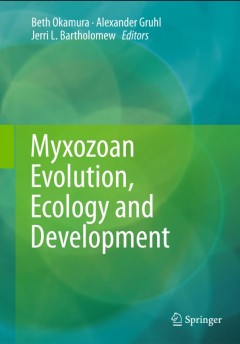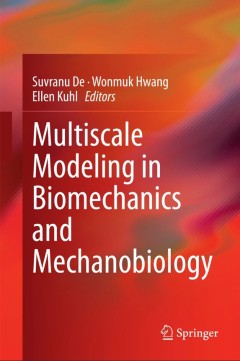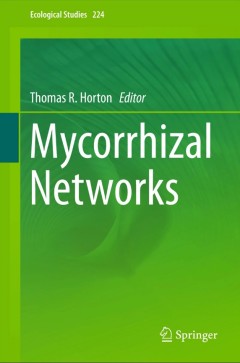Filter by

Nature Policies and Landscape Policies:Towards an Alliance
The book focuses on the relationship between nature conservation policies and landscape policies. This is a relevant subject due to the current need of reviving nature conservation policies, which are today affected by a general effectiveness deficiency. To this end, landscape policies can play a crucial role, bridging nature and culture, fostering more integrated approaches to nature conservat…
- Edition
- 1
- ISBN/ISSN
- 978-3-319-05409-4
- Collation
- XXX, 497
- Series Title
- Urban and Landscape Perspectives
- Call Number
- -

Myxozoan Evolution, Ecology and Development
This book provides an up-to-date review of the biology of myxozoans, which represent a divergent clade of endoparasitic cnidarians. Myxozoans are of fundamental interest in understanding how early diverging metazoans have adopted parasitic lifestyles, and are also of considerable economic and ecological concern as endoparasites of fish. Synthesizing recent research, the chapters explore issues …
- Edition
- 1
- ISBN/ISSN
- 978-3-319-14752-9
- Collation
- XIII, 441
- Series Title
- -
- Call Number
- -

Naturalists, Explorers and Field Scientists in South-East Asia and Australasia
"Alfred Russel Wallace- His Predecessors and Successors. Naturalists, Explorers and Field Scientists in South-east Asia and Australasia. An International Conference" will be the premier forum for the presentation of new advances and research results in the fields of studies on Alfred Russel Wallace and other natural historians, past and present, as well as contemporary research on South-east…
- Edition
- 1
- ISBN/ISSN
- 978-3-319-26159-1
- Collation
- XI, 283
- Series Title
- Topics in Biodiversity and Conservation
- Call Number
- -

Multiscale Modeling in Biomechanics and Mechanobiology
Presenting a state-of-the-art overview of theoretical and computational models that link characteristic biomechanical phenomena, this book provides guidelines and examples for creating multiscale models in representative systems and organisms. It develops the reader's understanding of and intuition for multiscale phenomena in biomechanics and mechanobiology, and introduces a mathematical framew…
- Edition
- 1
- ISBN/ISSN
- 978-1-4471-6598-9
- Collation
- VIII, 286
- Series Title
- -
- Call Number
- -

Murine Models, Energy Balance, and Cancer
This volume provides a transdisciplinary and translational review of many of the leading murine models used to study the mechanisms, mediators and biomarkers linking energy balance to cancer. It provides a review of murine models that should be of interest to basic, clinical and applied research investigators as well as nutrition scientists and students that work in cancer prevention, cancer co…
- Edition
- 1
- ISBN/ISSN
- 978-3-319-16732-9
- Collation
- XV, 295
- Series Title
- Energy Balance and Cancer
- Call Number
- -

Myeloid-Derived Suppressor Cells and Cancer
The book starts with an introduction to and history of myeloid-derived suppressor cells (MDSCs), followed by a description of their differentiation, their role in the tumour microenvironment and their therapeutic targeting. It closes with an outlook on future developments. In cancer patients, myelopoiesis is perturbed and instead of generating immunogenic myeloid cells (such as dendritic cells,…
- Edition
- 1
- ISBN/ISSN
- 978-3-319-26819-4
- Collation
- IX, 102
- Series Title
- SpringerBriefs in Immunology
- Call Number
- -

Mycorrhizal Networks
The last 25 years have seen significant advances in our understanding of the mycorrhizal fungi that colonize most of the world’s plants, and the mycorrhizal networks that form and extend into the soil beyond plant roots. In addition to a thorough review of recent research on mycorrhizal networks, this book provides readers with alternative perspectives. The book is organized into three sectio…
- Edition
- 1
- ISBN/ISSN
- 978-94-017-7394-2
- Collation
- XVIII, 286
- Series Title
- Ecological Studies
- Call Number
- -

Natural Killer Cells
To celebrate the 40th anniversary of the discovery of Natural Killer (NK) cells, this volume focuses on the recent advances in our understanding of NK cell development and differentiation and their acquisition of functional properties, as well as the latest models for NK-cell analysis in mice and applications in clinical medicine. NK cells have travelled a circuitous path from their initial des…
- Edition
- 1
- ISBN/ISSN
- 978-3-319-79554-6
- Collation
- VIII, 247
- Series Title
- Current Topics in Microbiology and Immunology
- Call Number
- -

Natural History Dioramas : History, Construction and Educational Role
This book brings together in a unique perspective aspects of natural history dioramas, their history, construction and rationale, interpretation and educational importance, from a number of different countries, from the west coast of the USA, across Europe to China. It describes the journey of dioramas from their inception through development to visions of their future. A complementary journey …
- Edition
- 1
- ISBN/ISSN
- 978-94-017-9495-4
- Collation
- X, 289
- Series Title
- -
- Call Number
- -

Encyclopedia of Astrobiology
The interdisciplinary field of Astrobiology constitutes a joint arena where provocative discoveries are coalescing concerning, e.g. the prevalence of exoplanets, the diversity and hardiness of life, and its increasingly likely chances for its emergence. Biologists, astrophysicists, biochemists, geoscientists and space scientists share this exciting mission of revealing the origin and commonalit…
- Edition
- -
- ISBN/ISSN
- 978-3-662-44185-5
- Collation
- 219 b/w illustrations, 484 illustrations in colour
- Series Title
- -
- Call Number
- -
 Computer Science, Information & General Works
Computer Science, Information & General Works  Philosophy & Psychology
Philosophy & Psychology  Religion
Religion  Social Sciences
Social Sciences  Language
Language  Pure Science
Pure Science  Applied Sciences
Applied Sciences  Art & Recreation
Art & Recreation  Literature
Literature  History & Geography
History & Geography